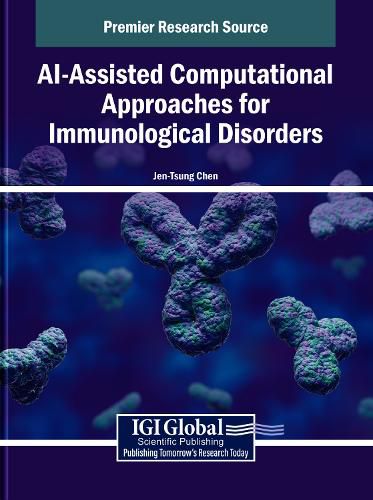Readings Newsletter
Become a Readings Member to make your shopping experience even easier.
Sign in or sign up for free!
You’re not far away from qualifying for FREE standard shipping within Australia
You’ve qualified for FREE standard shipping within Australia
The cart is loading…






This title is printed to order. This book may have been self-published. If so, we cannot guarantee the quality of the content. In the main most books will have gone through the editing process however some may not. We therefore suggest that you be aware of this before ordering this book. If in doubt check either the author or publisher’s details as we are unable to accept any returns unless they are faulty. Please contact us if you have any questions.
Based on accelerated computing and advanced algorithms, artificial intelligence (AI) has become a game-changer in diverse fields. In biomedical science, AI models based on machine learning, deep learning, and generative AI, together with upgraded computational and systems biology, provide smart, precise, and personalized medicine and healthcare. In the field of clinical immunology, which deals with intrinsic complicated immune systems for combating immunological disorders, AI technologies have the potential to solve problems based on identification, prediction, simulation, and modeling. AI algorithms may impact sustainable clinical healthcare and future immunology diagnoses. AI-Assisted Computational Approaches for Immunological Disorders explores precision clinical medicine and personalized healthcare in major immunological disorders, such as immunodeficiency, autoimmune diseases, allergies, asthma, cancers, and neurological diseases. It analyzes clinical healthcare big data, genomics, and high-throughput multiple omics based on single-cell and high-dimensional data for their technical advances, clinical applications, challenges, and future directions. Covering topics such as cell therapy, reducing complications, and drug development, this book is an excellent resource for immunologists, biologists, healthcare practitioners, professionals, researchers, scholars, academicians, and more.
$9.00 standard shipping within Australia
FREE standard shipping within Australia for orders over $100.00
Express & International shipping calculated at checkout
This title is printed to order. This book may have been self-published. If so, we cannot guarantee the quality of the content. In the main most books will have gone through the editing process however some may not. We therefore suggest that you be aware of this before ordering this book. If in doubt check either the author or publisher’s details as we are unable to accept any returns unless they are faulty. Please contact us if you have any questions.
Based on accelerated computing and advanced algorithms, artificial intelligence (AI) has become a game-changer in diverse fields. In biomedical science, AI models based on machine learning, deep learning, and generative AI, together with upgraded computational and systems biology, provide smart, precise, and personalized medicine and healthcare. In the field of clinical immunology, which deals with intrinsic complicated immune systems for combating immunological disorders, AI technologies have the potential to solve problems based on identification, prediction, simulation, and modeling. AI algorithms may impact sustainable clinical healthcare and future immunology diagnoses. AI-Assisted Computational Approaches for Immunological Disorders explores precision clinical medicine and personalized healthcare in major immunological disorders, such as immunodeficiency, autoimmune diseases, allergies, asthma, cancers, and neurological diseases. It analyzes clinical healthcare big data, genomics, and high-throughput multiple omics based on single-cell and high-dimensional data for their technical advances, clinical applications, challenges, and future directions. Covering topics such as cell therapy, reducing complications, and drug development, this book is an excellent resource for immunologists, biologists, healthcare practitioners, professionals, researchers, scholars, academicians, and more.